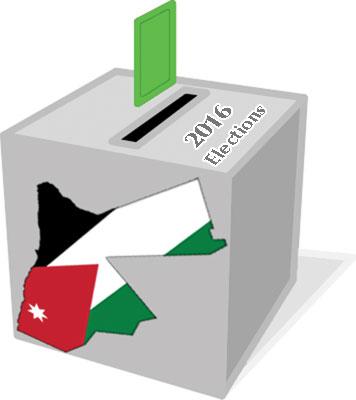You are here
Voters urged to choose candidates based on their programmes
By Omar Obeidat - Aug 12,2016 - Last updated at Aug 12,2016

AMMAN — With nearly 40 days to the parliamentary elections, experts have urged voters to judge candidates running for the September 20 polls based on their ability to address major issues.
In separate interviews with The Jordan Times, the pundits said although tribal considerations would influence the voting decisions of a large segment of Jordanians, some voters, particularly in major cities, would evaluate candidates according to their programmes or stands towards public issues.
Economist Zayyan Zawaneh said Jordan's biggest challenge is related to the performance of the economy, which makes it important for voters to pick candidates who have a realistic and professional approach to address economic woes.
"People's living conditions are becoming more difficult, and unemployment and poverty rates are too high," he said.
Zawaneh added that the majority of candidates and political parties tend to propose remedies to these economic difficulties through slogans for their campaigns.
When considering their choices, he advised, voters should look for efficiency, honesty and an ability to serve the country.
“Jordan needs strong political parties that have strong programmes. Voters should go to candidates who have solutions to problems facing the country and not those who promise to offer personal favours,” the analyst said.
The new electoral system is based on an at-large voting system, in which candidates can run for parliamentary elections on one large multimember ticket at the governorate level.
The Kingdom is divided into 23 electoral districts.
Musa Shteiwi, director of the Centre for Strategic Studies at the University of Jordan, said there are several factors that influence the voting decisions of Jordanians. They include tribalism, personal relations and an assessment of candidates’ abilities in public service.
According to Shteiwi, there is a segment in society, which he said is not simple-minded, that will pick candidates according to their programmes and views on certain issues.
“They [voters] may tend to judge candidates according to their performance in previous parliaments or during public service,” he said, adding that MPs cannot easily solve economic problems because they are politicians who are supposed to play an efficient legislative and monitoring role.
The expert urged people to elect those who have the ability and knowledge to tackle difficult issues, candidates who are “good” at legislation and those who have experience in public service and are known for their integrity.
Analyst Isam Qadmani, who is a columnist at Al Rai daily, called on voters to avoid casting their ballots for businesspeople.
“I’m against having businesspeople and representatives of economic sectors run for the elections,” he said, adding that Parliament is a house for politicians.
Qadmani said voters should select their representatives in Parliament on the basis of their vision with regards to top issues in the Kingdom and their experience in public service. They should also choose those known for not having personal agendas.
It is not necessary for MPs to have vast knowledge in politics or economy, he argued, but they should rely instead on studies and experts when debating issues under the Dome.
Columnist Fahed Fanek said the slogan of the upcoming elections should be changed from “Jordan elects” to “Jordan decides”, as people should elect candidates who share their same values and political views.
“But some segments of society still prefer to vote for members of their tribe even if they have different political views,” he added.
Related Articles
AMMAN — The lack of an effective presence by political parties coupled with the lack of confidence among Ammanites in the elected persons an
AMMAN – Experts on Wednesday praised the Independent Election Commission (IEC) for successfully administering Tuesday's parliamentary polls
AMMAN — Candidates in the upcoming parliamentary elections are using social media to reach out to voters, reducing the amount of funds spent












